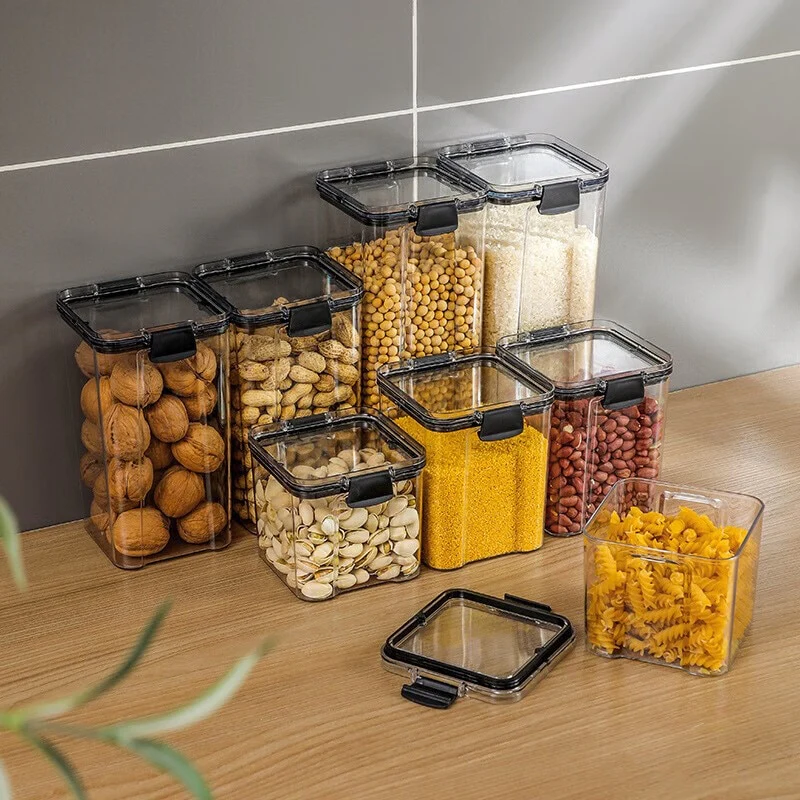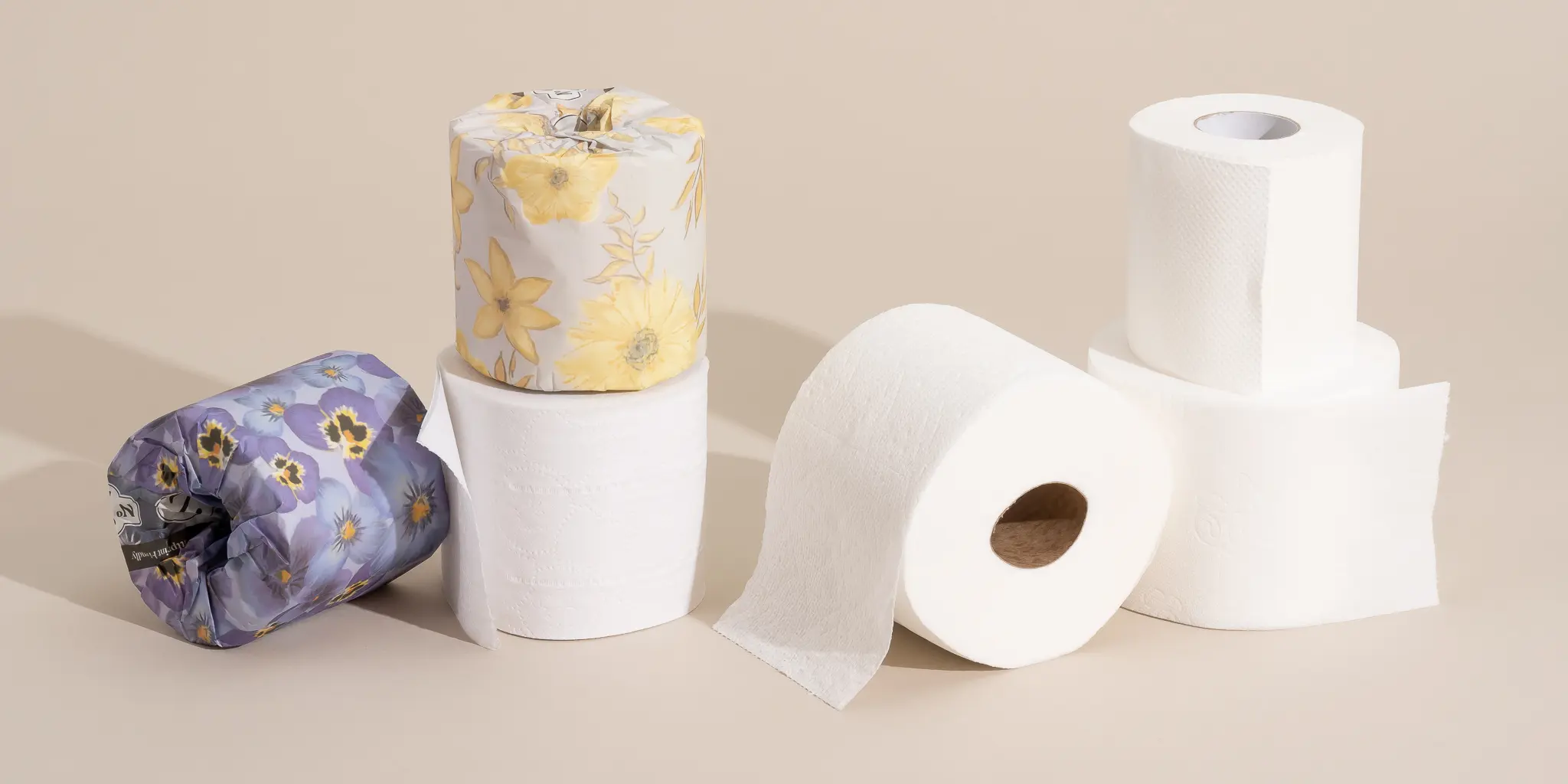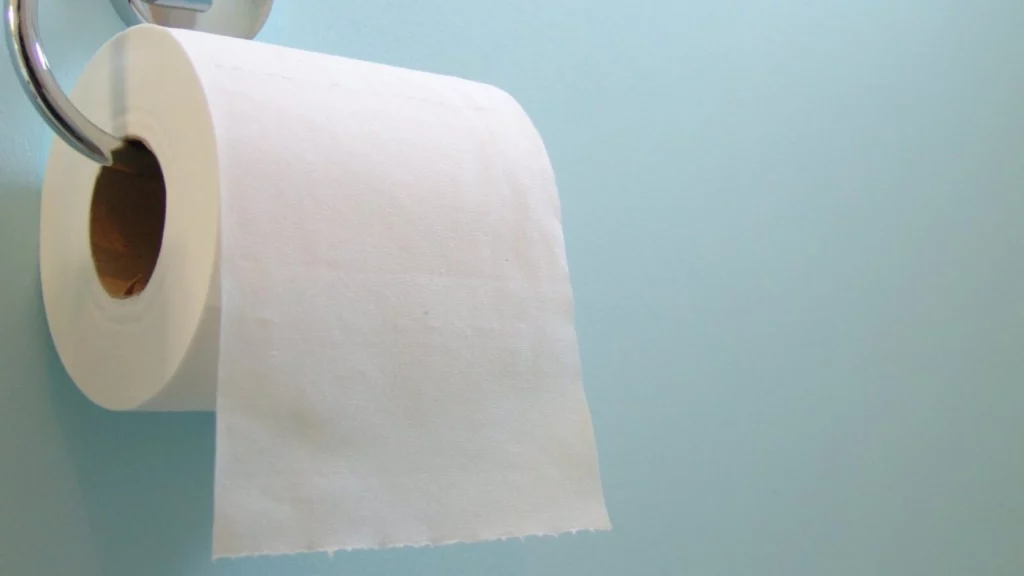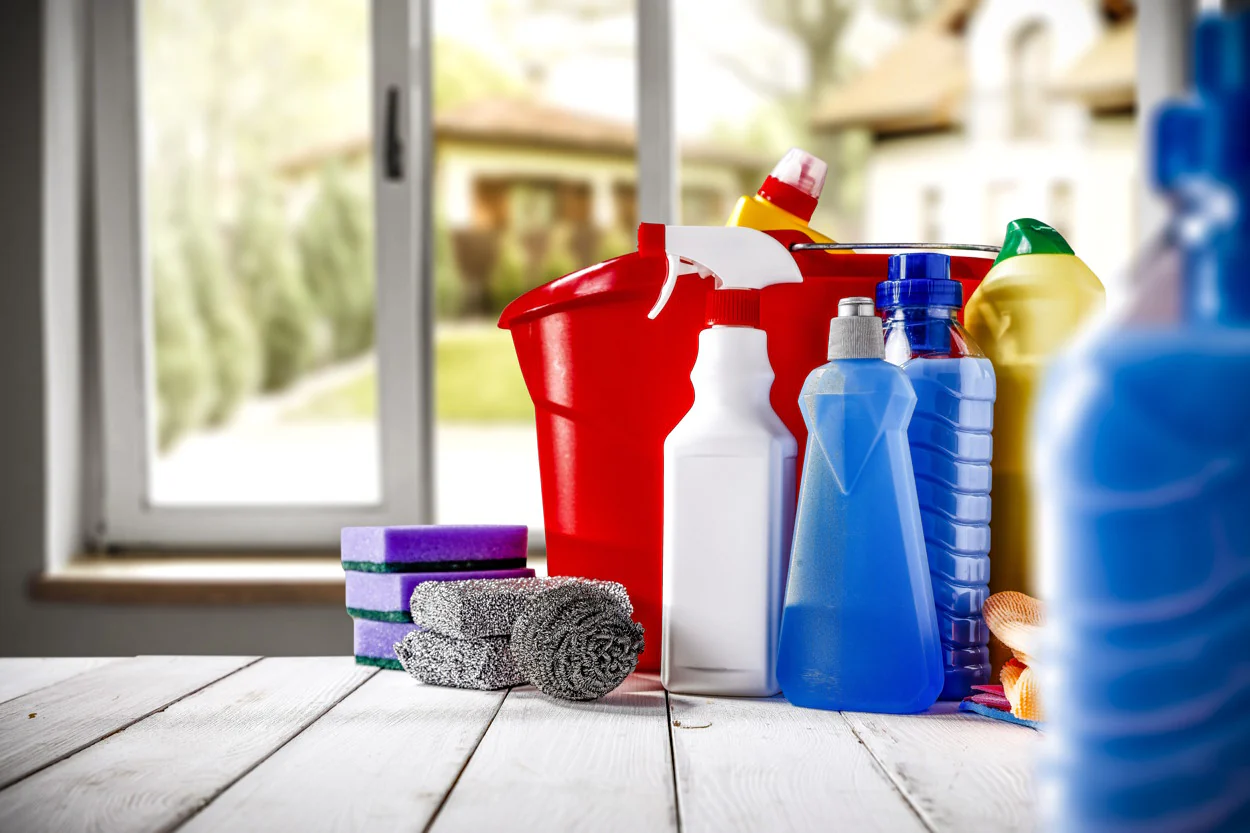
How To Select Food Storage Containers Based On Material: Glass, Plastic, Or Stainless Steel?
Selecting the right food storage containers is crucial for maintaining food freshness, quality, and safety. The material you choose directly...

Get 20€ off on your first order!
When choosing toilet paper (also called bathroom tissue or toilet tissue), the type you select can significantly influence the environmental impact. Understanding the differences between recycled toilet paper and virgin toilet paper is essential for making informed decisions that align with your values and priorities. This guide explores the environmental aspects of both options, offering practical insights for environmentally-conscious choices.
For an overview of toilet paper types, check out our Practical Guide to Choosing the Right Toilet Paper.
Recycled toilet paper is made from post-consumer recycled materials, such as newspapers and office paper, reducing the need for cutting down new trees.
In contrast, virgin toilet paper uses freshly harvested wood pulp, which often involves deforestation. These core differences shape their carbon footprint, water usage, and overall environmental impact.
| Aspect | Recycled Toilet Paper | Virgin Toilet Paper |
| Raw Materials | Uses post-consumer waste, reducing landfill waste and tree cutting. | Relies on new wood pulp, contributing to deforestation. |
| Carbon Emissions | Lower due to reduced need for logging, transportation, and processing. | Higher due to tree harvesting and manufacturing energy demands. |
| Water Usage | Typically less water-intensive during production. | Requires more water in the pulping and bleaching process. |
| Biodegradability | Comparable to virgin paper, breaking down easily in septic systems. | Comparable to recycled paper. |
For more on these materials, consult resources like Papernet.
Recycled toilet paper reduces the carbon footprint by minimizing energy-intensive activities like logging and transportation. Studies indicate that recycled paper production can lower carbon dioxide emissions by 40-70% compared to virgin paper. S
tudies show that producing recycled paper emits 40-70% less carbon dioxide than virgin paper. Using recycled toilet paper in your business or home can significantly contribute to reducing greenhouse gas emissions.
On the other hand, choosing recycled toilet paper helps avoid the environmental costs associated with virgin paper. The energy needed to process fresh wood pulp, coupled with emissions from logging trucks and machinery, contributes to global warming.
According to the ASECO Pack, switching to recycled alternatives can reduce the overall carbon footprint of a business.
The production of recycled toilet paper uses significantly less water compared to virgin options. Recycled paper manufacturing avoids many of the chemical-intensive processes, such as chlorine bleaching, which are commonly used for virgin pulp.
Virgin toilet paper production often involves extensive bleaching and chemical treatment, such as the use of chlorine compounds, which can have detrimental effects on water ecosystems.
These processes use more water and may introduce by-products into waterways, whereas recycled options contribute to cleaner ecosystems. By choosing recycled options, you support water conservation efforts and contribute to healthier ecosystems.
Recycled toilet paper is generally more affordable due to the availability of raw materials from post-consumer waste, which reduces reliance on costly virgin materials and promotes a circular economy.
Additionally, supporting recycled paper production encourages sustainable practices within the paper industry. In contrast, recycled paper offers a cost-effective alternative that reduces reliance on tree-based products and supports sustainable practices.

While recycled toilet paper is environmentally friendly, it’s not always the best choice for every scenario. For instance, high-traffic venues like luxury hotels or restaurants may prioritize the softness and durability of virgin toilet paper to meet customer expectations.
While virgin paper is known for softness and durability, advancements in recycled paper technology have made it a strong and eco-friendly alternative for most needs. However, advancements in recycling technologies have improved the quality of recycled paper, making it a viable alternative for most applications.
For businesses or homes prioritizing sustainability, recycled options are often the better choice. Look for certifications such as FSC or EU Ecolabel to ensure the product meets recognized environmental standards.
For individuals seeking premium quality, a balance between recycled and virgin fibers may be a good compromise. Explore premium recycled toilet paper options in the Toilet Paper category.
For additional buying advice, see our Choosing The Right Toilet Paper: A Practical Guide.
If you’re exploring options beyond toilet paper, consider other hygiene products like paper towels. These, too, come in recycled and virgin varieties, and the environmental considerations are similar. Learn more in our How To Choose The Right Paper Towels – A Buyer’s Guide.
Browse our full range of Paper Towels to make sustainable choices for your cleaning needs.
We hope this guide has provided the clarity you need to make an informed choice between recycled and virgin toilet paper, from understanding their environmental impact to considering their practical benefits. Whether you’re prioritizing sustainability at home or in your business, we’re here to support your eco-friendly journey.
Explore the full range of toilet paper options on Droppe, where trusted brands and sustainable choices are just a click away.
Have questions or need guidance on finding the perfect toilet paper? Feel free to reach out—we’re always here to help you make the best choice for both your needs and the environment.
– The Droppe Team
It can be, depending on the brand and production process. Some recycled options are just as soft as virgin paper.
Yes, recycled toilet paper is biodegradable and safe for septic systems, just like virgin toilet paper.
It tends to be more affordable due to the use of post-consumer waste as raw material.
Most people find recycled toilet paper suitable for daily use, though some may prefer virgin paper for its added softness or durability.
Look for FSC (Forest Stewardship Council) or EU Ecolabel for assurance of sustainable sourcing and production.
Thank you! You've signed up for our newsletter.



















Selecting the right food storage containers is crucial for maintaining food freshness, quality, and safety. The material you choose directly...

Selecting the right disposable spoons doesn’t have to be overwhelming. By considering material, durability, design, and sustainability, you can make...

Looking for the perfect degreaser? This guide simplifies the choice between solvent-based and water-based options, helping you find the best...

Selecting the right food storage containers is crucial for maintaining food freshness, quality, and safety. The material you choose directly...

Selecting the right disposable spoons doesn’t have to be overwhelming. By considering material, durability, design, and sustainability, you can make...

Looking for the perfect degreaser? This guide simplifies the choice between solvent-based and water-based options, helping you find the best...
Get 10€ off on your first order!
Save 30% by buying directly from brands, and get an extra 10€ off orders over €100
Save 30% by buying directly form brands, and get an extra 10€ off orders over €100